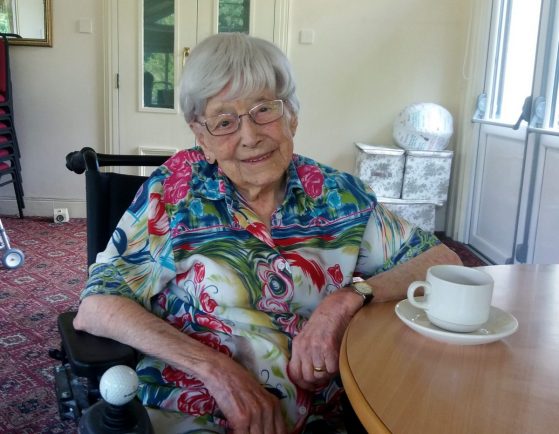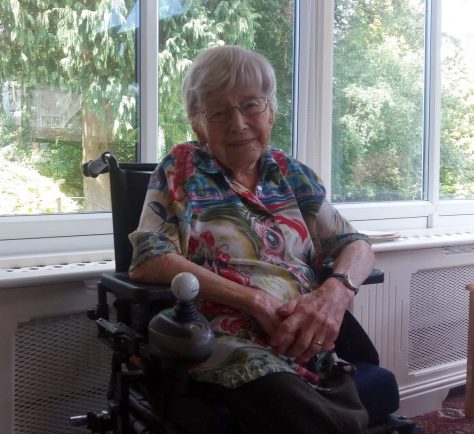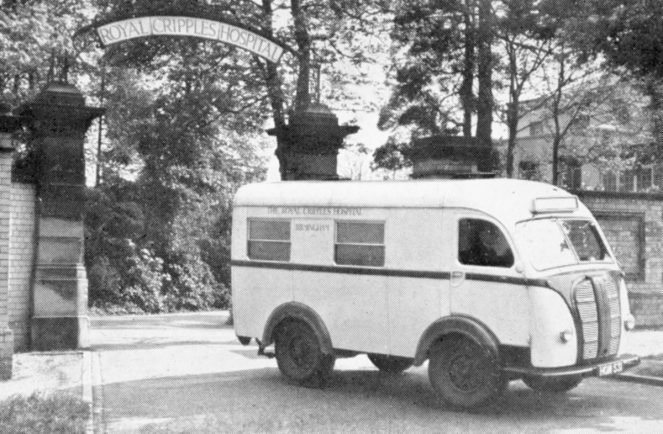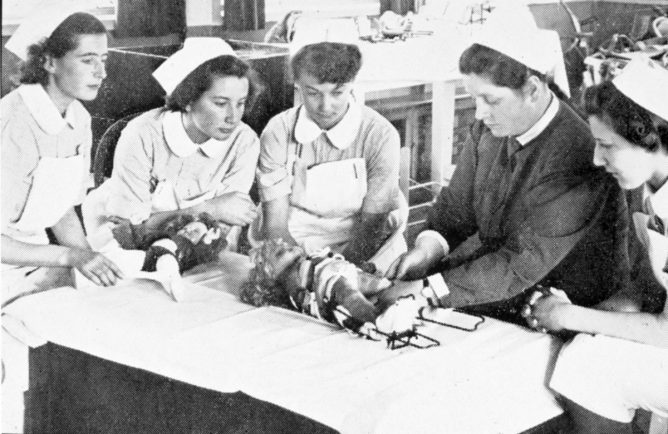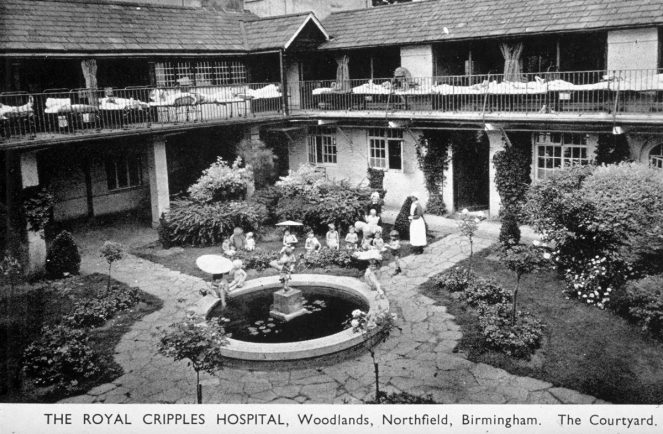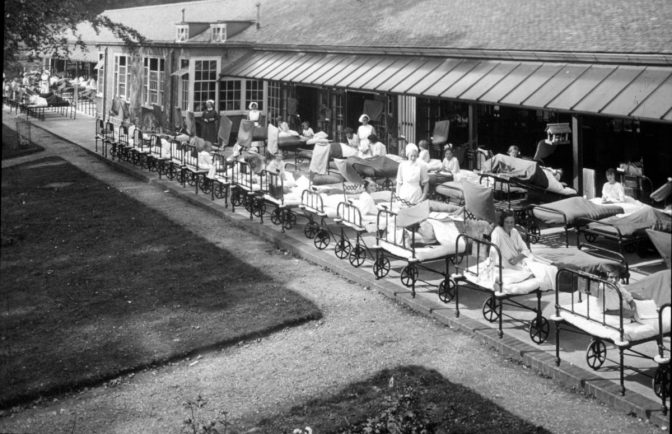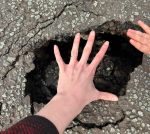A BROMSGROVE centenarian who worked in hospitals both before and after the National Health Service was introduced has spoken to The Standard about the impact the NHS has had.
Grace Cooper, who is 103 and lives in Burcot Grange, was born in 1914 in Winnipeg, Canada, and came to England with her family at the age of 16.
Whilst living in Gillingham, Kent, she undertook nursery training to become a nanny but soon realised she wanted to be a nurse.
She began her training at the Hampstead General (now part of the Royal Free Hospital) where she qualified as a State Registered Nurse (SRN).
She worked there for several years, gaining valuable experience, and in 1939, when the Second World War began, Grace was moved to the Old British Legion Hospital in Maidstone, Kent.
From there she went onto Sheffield Hospital to undertake six months training in midwifery before returning to Rochester in Kent where she was promoted to Ward Sister, also training and qualifying for her Children’s Certificate.
She used her skills to help the war effort, working as a nurse for the RAF where she recalls a time that a bomb hit a train carrying soldiers, killing as many as 100. She treated and nursed many injured servicemen back to health.
After being demobbed in 1945 Grace worked at Wingfield Morris Orthopaedic Hospital in Oxford, nursing and caring for children.
Then in 1946 she saw an advertisement for the children’s ward at the ‘Royal Cripples Hospital’ in Northfield and applied for that post.
On the day of her interview Grace got off the tram on the Bristol Road South, opposite the hospital and saw two men up ladders removing the letters.
“I asked them what they were doing and the one man said ‘we are changing the name from ‘The Royal Cripples’ to ‘The Royal Orthopaedic’.”
She got a job at The Royal Orthopaedic Hospital (ROH) and two years later the National Health Service was introduced.
The introduction of the National Health Service
Grace said when the idea was mooted most of the staff were sceptical about it.
“We said we would wait and see what happened.
“Hospitals back then were upheld by voluntary contributions and were hard-up.
“Even the nurses’ roles were unpaid to begin with.”
When the system did come in, Grace said, the staff or patients did not notice many differences to begin with.
“We didn’t see anything right away.
“It happened gradually, it was silly little things.
“We were very short of things one considers essentials these days.
“For example, there were no condiments on the trays before but they provided them.
“The little things made a real difference to the patients.
“Before the NHS all the wards were very different – some wards were well-funded if they had voluntary contributions.
“Others just had the basic beds and blankets.”
The wards became more standard after the NHS was brought in but some had more ‘extras’ if people were interested in contributing to them.
Grace said the branding of NHS items was also done gradually.
“Later all the NHS materials were marked but that didn’t stop people pinching them.”
Health funding had to be spent carefully to begin with.
“They had to ration out the money for different things.
“For example, mattresses were very hard and it took years before they could afford to change them for something much more comfortable.”
Another thing that was not standard were the uniforms which varied from hospital to hospital.
“Gradually we’ve improved the uniforms and I think now they are at the best they have been over the many years because everyone has similar ones.”
The differences the NHS made to healthcare
Speaking about one time before the NHS Grace said: “I remember one occasion a family had two little boys and one had a really bad cough and it was suggested he have medical attention but they said no as they could not afford it.
“They would not have a doctor unless it was absolutely necessary.
“After the NHS people were almost all lined up at the GP surgeries.
“I think they treated a lot of people unnecessarily when it was first nationalised because it was free but it soon settled down.
“People thought the NHS was like Santa Claus, giving them all sorts of things.
“Nearly everybody has needed the NHS at some stage in their lives.”
Grace on her time as a nurse
Grace told The Standard: “The patients are the most important people, that’s why we do the job.
“The nurses were considered to be at the bottom of the ladder but they were always the closest ones to the patients.
“People appreciated what they did.
“Very often they would always leave presents for the nurse who was closest to them,
“They left biscuits, chocolates and even money – although they weren’t supposed to accept that.
“I remember one of the patients asking the nurse to take her to the lavatory and then she pulled out some money to give to her to say thank you.
“We always appreciated it.”
The Royal Orthopaedic was Grace’s favourite hospital she worked at.
“Most of the staff were voluntary there, except the nurses and they helped out wherever they wanted.”
“We passed a lot of our knowledge onto the nurses who were coming up, we led by example.
“In the end they arranged it so nurses had special training – that happened in the 1950s and varied from hospital to hospital.
“You knew then everyone had the same skills.”
After working at the Royal Orthopaedic for several years Grace was given a year off to return to Canada.
When she came back she went back to the Royal Orthopaedic before taking a job at Forelands Hospital in Bromsgrove which was part of the ROH at the time and was used for children recovering from orthopaedic procedures.
She was in charge at the Forelands for six years before reaching the pinnacle of her career – as Matron at Bromsgrove’s Cottage Hospital.
She said: “People liked it there because it was like a private hospital.
“They had separate wards – one for men, one for women and one for children.
“People enjoyed being looked after by nurses in the cottage hospital because they got a lot more attention from people in a smaller hospital.
“I can’t remember the number of patients per ward but there was no more than 20 on each one.”
When asked about her approach as a manager she said: “I was a strict ward sister. You learnt your trade and that was part of it.
“They would dread it when I was coming round in case they hadn’t done the beds properly.”
Cleanliness of hospitals was a high priority – ‘everything had to be spotless’ and nurses were not supposed to wear their uniforms outside the hospital, although some of them did.
Grace held her Matron position until she retired in 1974.
The NHS now and the future
Grace said: “I think I have been away from nursing for so long it is difficult for me to say what it is like now but it appears they have to work very hard.
“Funding seems to be gradually going up but I think this present Government didn’t want the health service to prosper and didn’t give the NHS all the help it to start with.
“I think they wanted some sort of private or part-private system but I don’t know why they wanted it to be similar to somewhere like the United States.”
She added she thought the Government were beginning to realise what it means to people.
“I did get the feeling they didn’t want it to survive but I think they do now, although they wouldn’t admit that.”
Like her approach to running a ward Grace has a stern message to this Government and future ones.
“The National Health Service should continue and improve and everything should be done to make that happen.
“My own opinion is unless we get support financially – whichever Government it is – will need to consider spending more.
“I know sometimes money is wasted – that happens wherever you are – but generally I would like to see more spent on it.”

